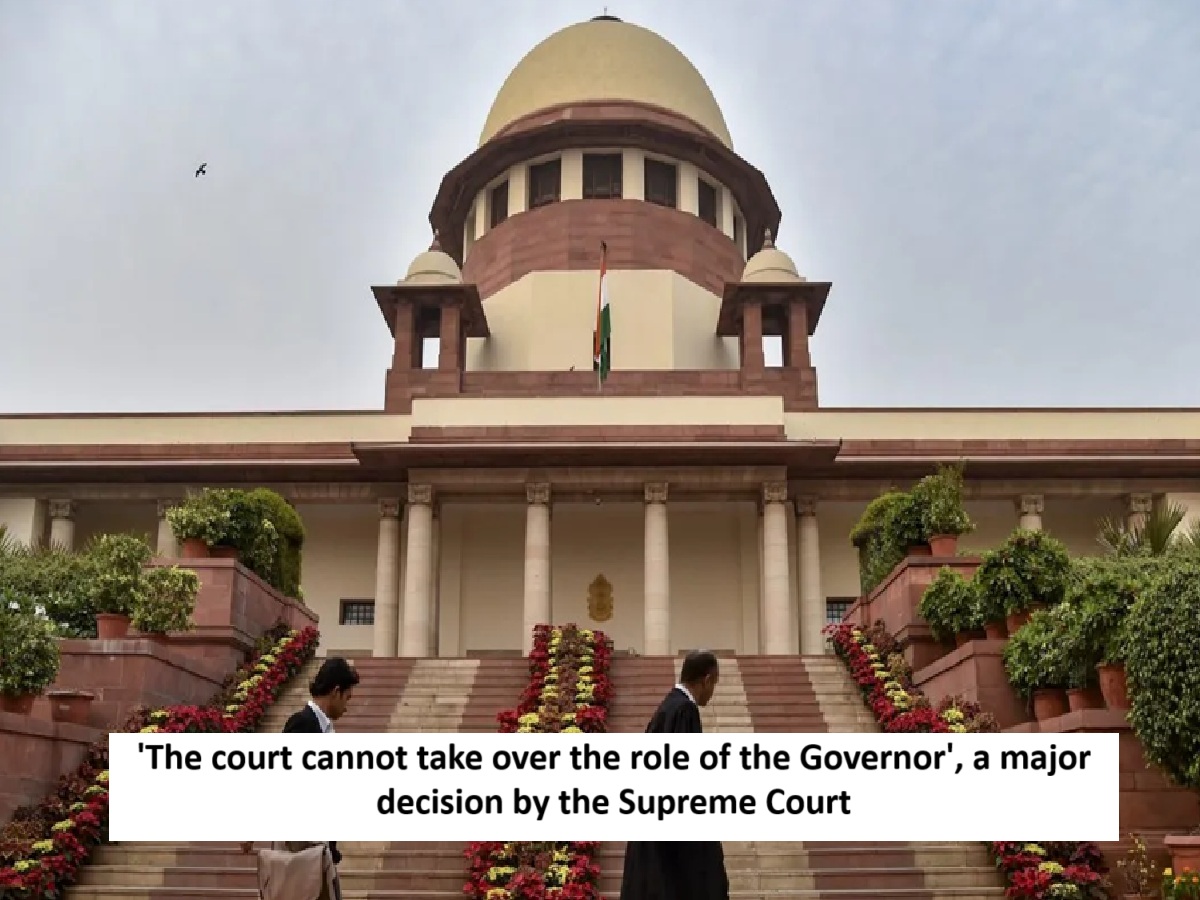
News Topical, Digital Desk : The Supreme Court today delivered its verdict after a lengthy hearing on the issue of setting deadlines for the President and Governors to assent to bills. A five-judge Constitution bench headed by the CJI ruled that the court cannot usurp the Governor's role. The Supreme Court stated in its decision that imposing a time limit would be completely contrary to the flexibility so carefully protected by the Constitution.
What did the Supreme Court say?
Reading out the judgment, the CJI stated that the arguments advanced by the central and state governments in favor of a presidential reference have been considered by the Supreme Court in its judgment. The Supreme Court held that the court cannot usurp the governor's role. Under Article 200, the governor can either assent to a bill, withhold and return the bill, or refer the bill to the president. Article 200 provides no alternative option for the governor. While the Supreme Court acknowledged that governors cannot indefinitely veto state bills, it refused to set a time limit for governors and the president, stating that doing so would violate the separation of powers.
The direction given by the 2-judge bench in the Tamil Nadu case is unconstitutional: SC
The Supreme Court stated that a court cannot set a time limit for the Governor to assent to bills. It also stated that the concept of deemed assent is contrary to the spirit of the Constitution and the principle of separation of powers. However, the Supreme Court clearly stated that constitutional courts cannot impose a time limit on the President and Governor to decide on bills. The Supreme Court stated that such a direction given by a two-judge bench in the Tamil Nadu case is unconstitutional. The Supreme Court also stated that constitutional courts cannot grant deemed assent to bills pending before the Governor, as a two-judge bench had granted valid assent to 10 Tamil Nadu bills using the powers of Article 142. The five-judge Constitution bench held that the SC cannot unconstitutionally usurp the powers of governors and the President.
Imposing a time limit would be the complete opposite of flexibility: SC
The CJI said that imposing a time limit would be completely contrary to the flexibility so carefully protected by the Constitution. The concept of deemed consent recognizes that one authority, namely the court, cannot take on the role of another authority. The usurpation of the governor's or the president's gubernatorial powers is contrary to the spirit of the Constitution and the principle of separation of powers. The concept of deemed consent by the court amounts to the usurpation of the powers of another authority, and Article 142 cannot be invoked for this purpose.
Judicial review-scrutiny only when the bill becomes law-SC
The CJI said, “We therefore see no reason to deviate from this Court's precedents. The President and Governor are justified in discharging their functions under Articles 200 and 201. Judicial review and scrutiny can only occur once a bill becomes law. It is unimaginable to suggest that bills can be brought before the Court instead of the President's advisory jurisdiction being specified under Article 143. The President is not required to consult this Court every time a bill is referred to him. If the President requires the option of advisory jurisdiction under Article 143, it is always available.”
--Advertisement--

 Share
Share



